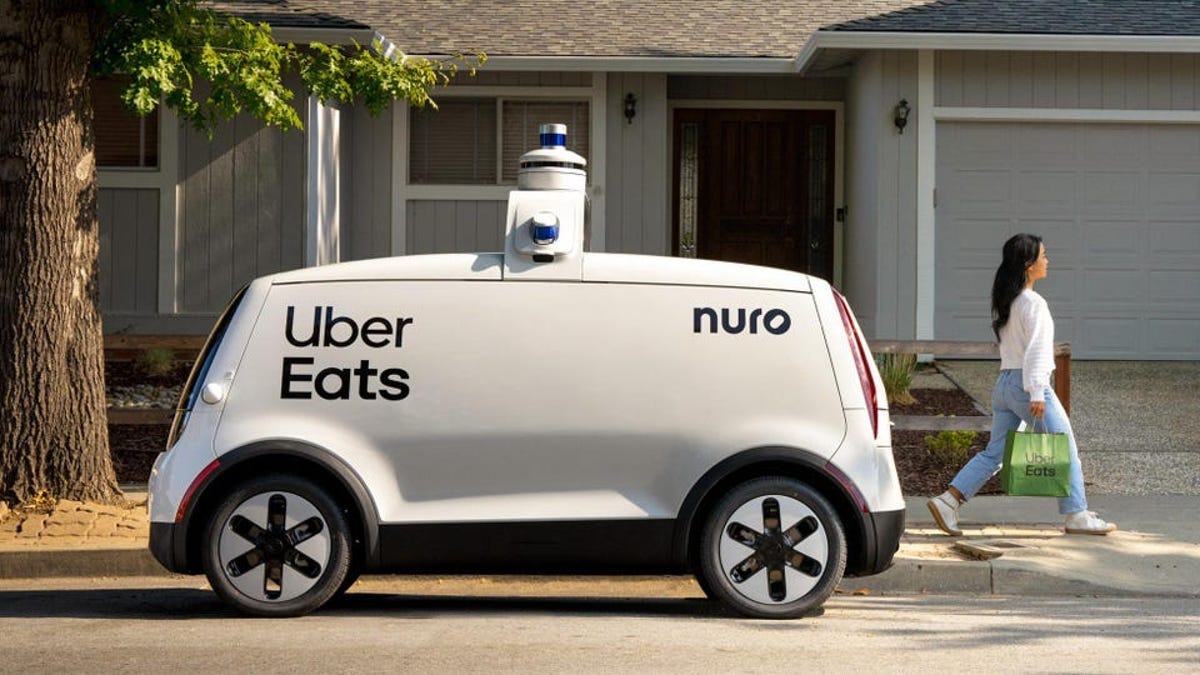AI on Wheels: Nuro's Bold Leap in Autonomous Delivery
In 2013, the leading US food delivery service DoorDash was founded. 32 million people have access to almost any restaurant, grocery store, and convenience store with just the click of a button. The next year, Tesla introduced its first version of autopilot, allowing drivers to lay back while the car steers, accelerates, and stays within its lane. But what could happen if these two innovative services came together? Nuro, a company started in Moutain View, California, wanted to answer this question.
Founded in 2016 by Jiajun Zhu and Dave Ferguson, former engineers at Google's self-driving car project. Google was getting ready to spin out its self-driving car project into what would eventually become Waymo. Early team members like Zhu and Ferguson were given the option to either stay on and receive payouts over eight subsequent years, or take a lump sum and leave the company. Zhu and Ferguson chose the latter, and each of them got a cash payout of around $40 million. Just a few weeks later, the two created Nuro with the idea of taking a different path toward autonomous vehicles.
Nuro’s robotic delivery services were brought to the market in 2018 with $92 million in funding from Greylock Partners and Gaorong Capital, and then in 2019, raised an additional $940 million from Softbank Group. The company revealed its first product, an electric self-driving local commerce delivery vehicle. Known as the R1, it weighs 1,500 pounds and is just over 6 feet tall, and about half the width of a Sedan. This vehicle is designed to carry only cargo, with space for 12 grocery bags in the first model.
In these two years, Nuro was able to partner with Kroger and Domino’s introducing themselves firmly into the delivery by connecting with a nationwide grocery store and the most well-known delivery restaurant. In May 2020 The company began prescription delivery through CVS Pharmacy and in December 2021, Nuro announced a partnership to commercially deliver 7-Eleven goods.
Big news came for Nuro In September 2022, as they and Uber Announced a 10-year partnership for autonomous food deliveries starting in California and Texas. Uber Eats consumers will be able to order meals and goods delivered by Nuro's zero-occupant autonomous delivery vehicles, which run on public roads and are built specifically to carry food and other goods.
The partnership of the two highlights the rapidly growing potential for Nuro or even other autonomous delivery services. However, in 2023 Nuro was met with financial issues. Nuro laid off workers, about 300 people, or 20% of its workforce, in a bid to cut costs and extend capital runway.
Nuro is changing its operations, a shift that will pause plans to ramp up commercial operations this year and delay volume production of its Nuro bot — the third-generation, or R3, delivery robot designed to be the flagship of its commercial strategy. But, Zhu and Furgeson believe this change in direction will allow them enough capital to operate for three years without the need to raise any funds.
Going forward, Nuro could diversify its offerings and tap into the robotaxi industry, which is expected to be worth upwards of $100 billion by 2029. In a time when Americans place a greater emphasis on convenience, speed, and reliability, the potential for Nuro’s future seems bright.






